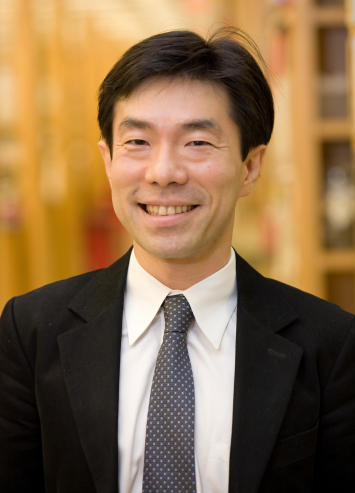 Fumihiko Urano, MD, PhD |
Fumihiko Urano, MD, PhD, associate professor of molecular medicine, has been elected to the American Society for Clinical Investigation (ASCI), for his groundbreaking discoveries linking cell stress caused by the accumulation of abnormal proteins with important human chronic disease, such as diabetes and neurodegenerative diseases.
The ASCI was established in 1908 and is one of the nation’s oldest and most respected medical honor societies. It comprises more than 2,800 physician-scientists from all medical specialties who are elected to the society for their outstanding records of scholarly achievement in biomedical research. The ASCI represents active physician-scientists who are at the bedside, at the research bench and at the blackboard. Many of its senior members are widely recognized leaders in academic medicine.
“Dr. Urano is well regarded in the fields of diabetes and endoplasmic reticulum stress response,” said David M. Harlan, MD, the William and Doris Krupp Professor in Medicine and professor of medicine, who is also an ASCI member. “His revolutionary work has played a critical role in establishing the concept that stress to the endoplasmic reticulum system in the cell (which is responsible for synthesizing proteins and lipids and metabolizing carbohydrates) is associated with beta cell dysfunction and death in diabetes.”
“I happened to start doing research as part of my training as a pediatric pathologist to deepen my knowledge of pediatric diseases,” said Urano. “I am gratified that our efforts to dissect the mechanisms of juvenile onset diabetes and neurodegeneration have been recognized by the ASCI.”
Because ASCI requires members to be 45 years of age or younger at the time of their election and have a medical degree, election recognizes accomplishments by its members relatively early in their careers. “Dr. Urano’s selection to the society is a testament to how much he has already accomplished in his young career,” said John F. Keaney, MD, professor of medicine and microbiology & physiological systems and ASCI member. “It’s also a reflection of the quality of young talent that UMass Medical School has to offer.”
Urano received his MD and his PhD in pathology in from Keio University Graduate School of Medicine in Tokyo. He completed his residency in pathology at Keio University Hospital and was a post-doctoral fellow at the Skirball Institute of Biomolecular Medicine at the New York University School of Medicine, where his work was supported by research fellowships from the Japan Society for the Promotion of Science and the Uehara Memorial Foundation. Urano joined the Program in Gene Function and Expression as an assistant professor in 2002. His work has been funded by the National Institutes of Health, Juvenile Diabetes Research Foundation International, American Diabetes Association and Worcester Foundation for Biomedical Research. In 2007, he was awarded a UMMS Faculty Achievement Award. Additionally, Urano played a critical leadership role in initiating the Wolfram Syndrome international registry, tissue bank and the international study group that brings together a unique group of clinicians, patients’ families and researchers.
The ASCI is dedicated to the advancement of research that extends the understanding and improves the treatment of human diseases, and members are committed to mentoring future generations of physician-scientists.
Urano joins other distinguished UMMS faculty named ASCI members, including:
• Daniel T. Baran, MD, professor of orthopedics & physical rehabilitation and cell biology and medicine
• Neil R. Blacklow, MD, professor emeritus of medicine and molecular genetics & microbiology
• Francis A. Ennis, MD, professor of medicine and microbiology & physiological systems
• Robert W. Finberg, MD, the Richard M. Haidack Professor of Medicine, chair and professor of medicine and professor of microbiology & physiological systems
• Douglas T. Golenbock, MD, professor of medicine and microbiology & physiological systems
• David M. Harlan, MD, the William and Doris Krupp Professor in Medicine and professor of medicine
• Jeanmarie Houghton, MD, PhD, associate professor of medicine and cancer biology
• John F. Keaney, MD, professor of medicine and microbiology & physiological systems
• Peter E. Newburger, MD, the Ali and John Pierce Chair in Pediatric Hematology/Oncology and professor of pediatrics, cancer biology and microbiology & physiological systems
• Steven Reppert, MD, the Higgins Family Professor of Neuroscience and chair and professor of neurobiology
• Aldo A. Rossini, MD, professor emeritus of medicine and molecular medicine
• John L. Sullivan, MD, professor of pediatrics, microbiology & physiological systems and pathology
• Robert B. Zurier, MD, professor emeritus of medicine and cell biology